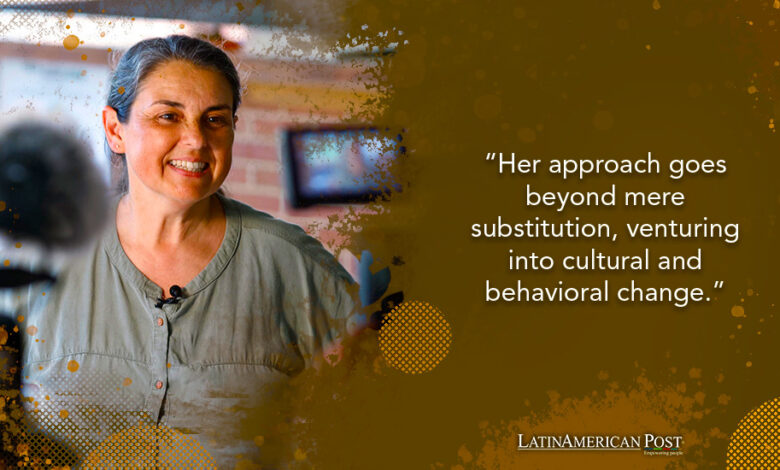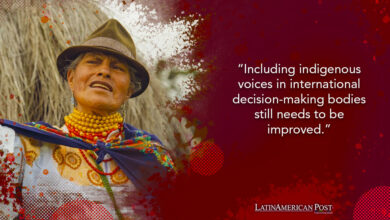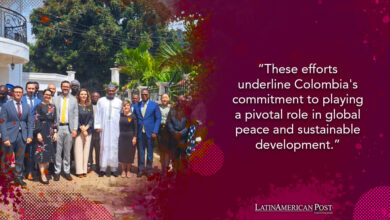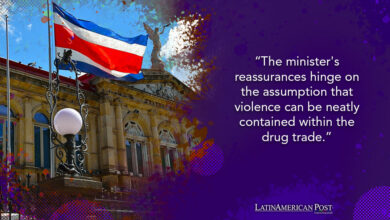A Comprehensive Approach to Cuba’s Nutritional Problems

In the face of food scarcity, entrepreneur María Paco’s initiative in Cuba emphasizes healthier eating through local resources and underscores a pressing need to reevaluate our broader political models and approaches to food sovereignty and sustainable agriculture.
Amid a global reawakening towards sustainability and health, the narrative of María Paco, a Hispano-French entrepreneur, is prominent. Launching a nutritional education project in Cuba in 2017, Paco’s venture is not just a tale of shifting dietary habits amidst food scarcity but a clarion call to reexamine the political frameworks that govern our access to and relationship with food. This call for a holistic overhaul of our political and nutritional paradigms is especially poignant in regions like Latin America, where diverse cultures and ecosystems present unique challenges and opportunities.
A Seed of Change in Cuban Diets
María Paco’s journey from a fruit seller in France to a nutritional educator in Cuba underscores a critical point: the essence of change begins with awareness. Her project, born from realizing the lack of nutritional education in Cuba—a country where food scarcity is a pressing issue—aims to diversify the Cuban plate with healthier, locally available options. Her approach goes beyond mere substitution, venturing into cultural and behavioral change.
The emphasis on utilizing what the land provides, inspired by her familial roots in agriculture, mirrors a more significant, essential shift needed in global food systems: a move towards local sustainability and away from reliance on imports, which is particularly resonant for an island nation importing over 80% of its consumed goods.
Cultivating Minds: The Role of Education
Paco’s initiative, transforming into a local development project in 2017, highlights the indispensable role of education in fostering a sustainable relationship with food. Collaborating with local schools to instill values of healthy eating and respect for agriculture from a young age sows the seeds for immediate behavioral change. It germinates a deeper understanding and appreciation of local ecosystems and the labor that nourishes them.
This educational approach, underpinned by support from international organizations like the World Food Programme, UNESCO, and UNICEF, exemplifies a model that transcends borders, emphasizing the universality of nutritional education as a cornerstone for sustainable development.
The Political Plate: Beyond Individual Choices
While Paco’s project is commendable for its direct impact on local communities, it inadvertently sheds light on a more significant, often overlooked aspect of the food sovereignty dialogue: the political model. Cuba’s approval of the Food Sovereignty Law in 2022, aiming to bolster municipal autonomy and promote sustainable agriculture, is a step in the right direction. Yet, this legislative move is a drop in the ocean of global agricultural policy reform needed to address the systemic issues plaguing our food systems.
As Paco notes, the challenge of shifting dietary habits in Cuba symbolizes a broader resistance to change that is not limited to individual or cultural inertia. Still, it is entrenched in the global food production and distribution political economy. This resistance underscores the imperative to interrogate and innovate upon our existing political models to ensure they are conducive to, rather than inhibitive, sustainable, and equitable food systems.
From Local to Global: Scaling the Model
The success of initiatives like Paco’s in Cuba presents a blueprint for replication and scaling across Latin America and beyond. The continent’s rich biodiversity and cultural tapestry offer fertile ground for similar educational projects that can tailor their approach to local contexts while contributing to a collective reimagining of our global food systems.
However, for these projects to truly effect change at a systemic level, they must be supported by policies prioritizing food sovereignty, environmental sustainability, and equitable access to nutritious foods. This requires a concerted effort from governments, international organizations, and civil society to create an enabling environment for such initiatives to flourish and to integrate them into broader strategies for sustainable development.
A Call to Action: Rethinking Our Food Politics
As we laud the efforts of individuals like María Paco and the communities that embrace these initiatives, it is imperative that we also turn our gaze upwards to the structures of power and policy that shape our food landscapes. The battle for a healthier, more sustainable future is fought not only in the fields and kitchens but in the halls of legislation and international trade frameworks.
The narrative of nutritional education in Cuba, set against the backdrop of food scarcity and legislative change, serves as a microcosm for the global challenges we face. It reminds us that while individual and community-level actions are crucial, they must be part of a broader, systemic approach that reevaluates and reforms the political models underpinning our food systems. Only then can we hope to achieve a future where access to nutritious, sustainably produced food is not a privilege but a right shared by all.
Also read: Cuba Unraveling a Major Chicken Heist Amid Food Shortages
The journey toward sustainable nutrition is local and global, requiring us to weave together threads of education, policy reform, and community engagement. As we move forward, let us draw inspiration from projects like Paco’s, using them as a springboard to catapult our societies towards more equitable, resilient, and healthy food futures.





